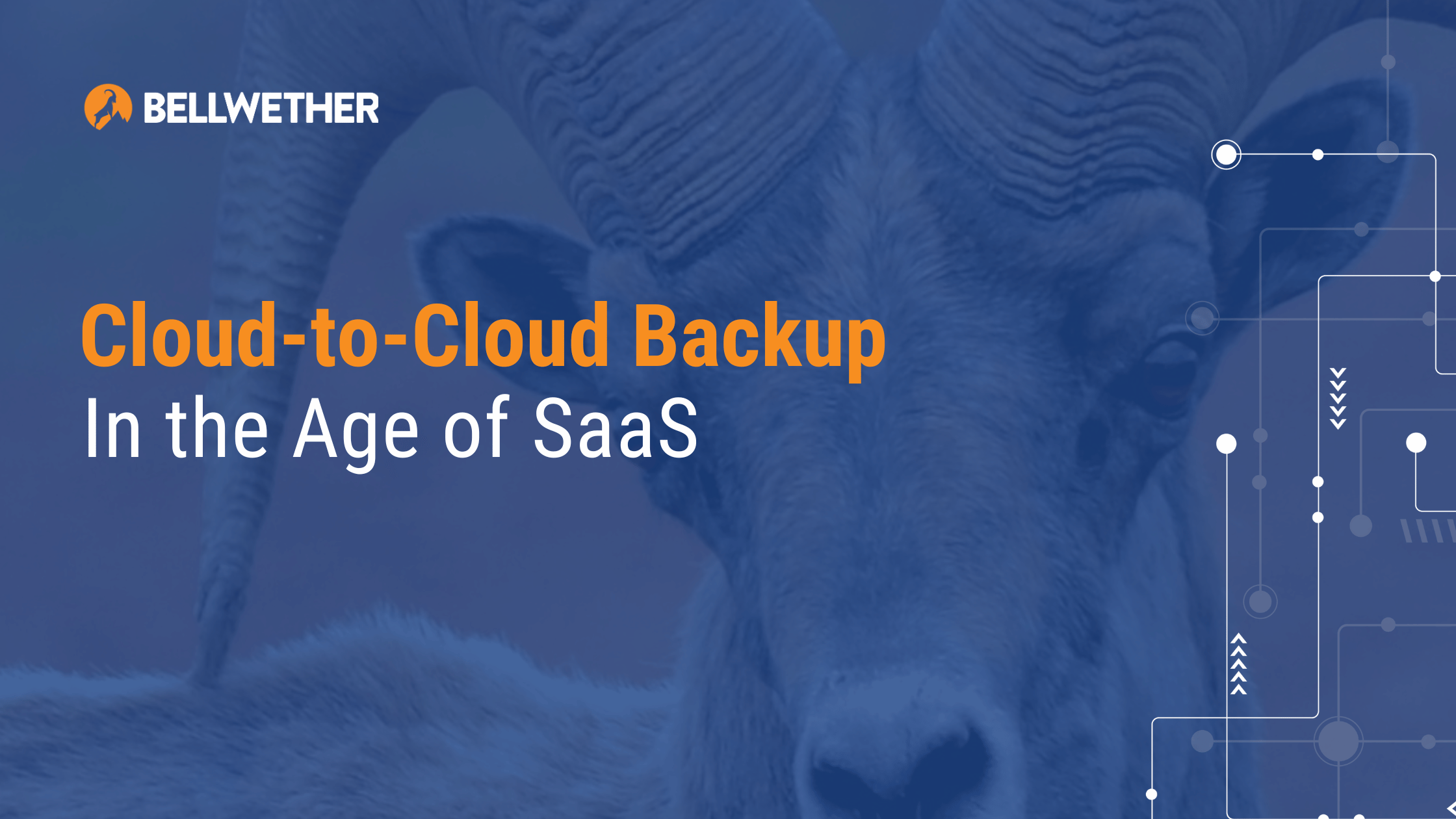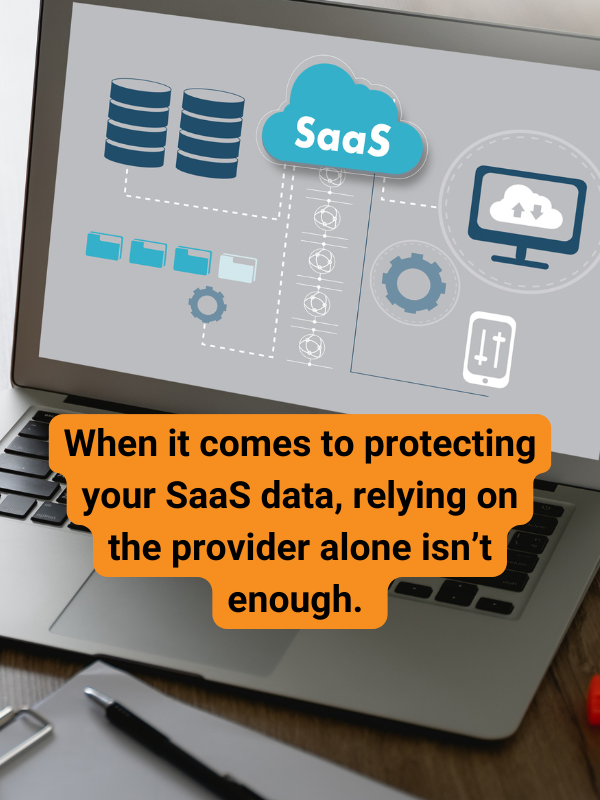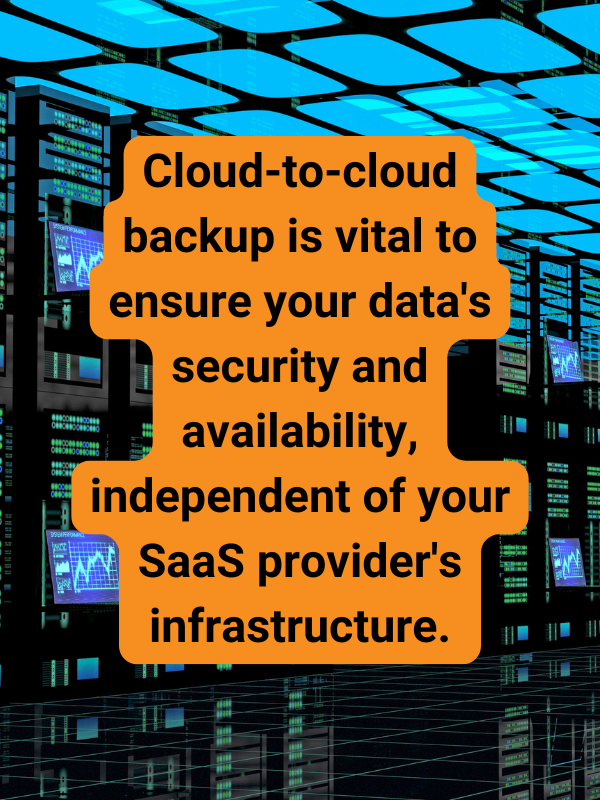
Imagine logging into your email one morning and finding an empty inbox. No emails, no attachments, no records of past conversations. Or envision discovering that all your contacts in your sales and marketing CRM are gone. These terrifying scenarios can happen if your data isn’t properly backed up. While many assume that cloud services automatically safeguard all their data, the reality is different. Cloud-to-cloud data backup has become an essential strategy to ensure your data remains protected, even when relying on third-party Software as a Service (SaaS) applications.
Here’s what you’ll find in this article:
- Understanding the Responsibility Divide
- The Evolution of Data Backup Strategies
- The Emergence of Cloud to Cloud Data Backup
- Why Cloud to Cloud Backup is Critical
- Implementing Cloud to Cloud Backup for Your Business
- The Benefits of Proactive Data Management
- Working with a Managed IT Service Company
- Take the Next Step to Secure Your Data in the Cloud
Understanding the Responsibility Divide

When you use services like Microsoft 365 for email, document management, and team collaboration, it’s easy to presume that your data is completely safe. These providers manage the infrastructure, handle updates, and ensure service availability. However, the responsibility for protecting your data ultimately falls on your shoulders. While SaaS providers are focused on keeping their services up and running, they may not have measures in place to restore your lost data.
Consider a scenario where Microsoft’s servers fail. While they will restore the service, their contract may not require them to recover your specific data, such as emails or files. This could leave you with blank email inboxes, technically back online but missing all historical data. This highlights the importance of understanding the responsibility divide between your business and service providers.
The Evolution of Data Backup Strategies
Traditionally, businesses managed data backups using on-premises hardware and software. This involved significant costs for purchasing and maintaining backup hardware and software, as well as the manual effort required to ensure regular backups. Companies would back up their email servers, file servers, and other critical data to local storage devices, with a copy moved offsite for added protection.
With the advent of cloud services, many businesses transitioned to cloud-based solutions for email, file storage, and other applications. While this shift brought numerous benefits, it also introduced new challenges for data protection. Many business leaders mistakenly believe that moving data to the cloud eliminates the need for backups. This is not the case.
The Emergence of Cloud-to-Cloud Data Backup
This is where cloud-to-cloud data backup comes in—a relatively new but crucial development in data protection. This approach involves backing up data from one cloud service to another third-party cloud provider. For example, you might back up your Microsoft 365 data, including SharePoint, OneDrive, email, and calendar, to another cloud service. Similarly, data from other common SaaS platforms like Google Workspace, Salesforce, HubSpot and Dropbox can also be backed up to ensure redundancy and security.
Cloud-to-cloud backup is especially critical for companies that rely heavily on SaaS applications. These businesses often have little to no on-premises infrastructure and depend entirely on third-party vendors to host their applications. While these vendors handle the heavy lifting of maintaining and updating their services, they may not provide adequate data protection for your specific needs.
Why Cloud-to-Cloud Backup is Critical

Without a data backup plan, your business is exposed to significant risks. Consider the impact if a cloud service provider suffers a major outage and loses your data. While they might restore the service itself, recovering your lost data may not be part of their contract. This scenario could disrupt your operations, damage your reputation, and lead to financial losses.
Compliance is another critical factor. Many industries have strict regulations regarding data protection and retention. Relying solely on your SaaS provider for data backup might not meet these regulatory requirements, potentially exposing your business to legal risks.
Implementing Cloud-to-Cloud Backup for Your Business
So, how can you effectively implement cloud-to-cloud backup? Start by assessing which data needs to be backed up. This typically includes emails, files stored in services like SharePoint and OneDrive, data from Google Workspace applications, Salesforce or HubSpot records, and Dropbox files. Next, choose a reliable third-party cloud backup provider.
Once you’ve chosen a provider, set up regular, automated backups. Automation consistently backs up your data without relying on manual processes, reducing the risk of human error. Regular backups also make it easier to restore data quickly in the event of a failure.
The Benefits of Proactive Data Management
Implementing cloud-to-cloud backup offers several advantages. First and foremost, it enhances your data protection, ensuring that your critical information is safe from loss or corruption. This is crucial for maintaining business continuity, as it minimizes disruptions in the event of a data loss incident.
Another significant benefit is compliance with industry regulations. By backing up your data to a third-party cloud provider, you can meet the stringent data protection and retention requirements that apply to your business.
Finally, proactive data management demonstrates to your clients, partners, and stakeholders that you take data protection seriously. This can enhance your business reputation and build trust with those you work with.
Working with a Managed IT Service Company

Implementing and managing cloud-to-cloud data backup can be complex, but partnering with a managed IT service company can simplify the process. These companies have the expertise to assess your data protection needs and recommend the best solutions. They can handle the setup of automated backups and ensure that all critical data is consistently protected.
Managed IT service providers also provide ongoing management and support. This includes monitoring backups for success, troubleshooting issues as they arise, and regularly testing to verify data integrity. With a managed IT service company, you can have peace of mind knowing that your data is in good hands and that you have a team of experts ready to assist in case of any data loss incidents.
Take the Next Step to Secure Your Data in the Cloud
In a world where cloud services are increasingly integral to business operations, it’s vital to understand that data protection remains your responsibility. Cloud-to-cloud data backup is a crucial strategy to ensure that your data is safe, even when using third-party SaaS applications. By proactively implementing cloud-to-cloud data backup and partnering with a managed IT service company, you can safeguard your business against data loss, ensure regulatory compliance, and maintain business continuity.
Don’t wait for a data disaster to realize the importance of cloud-to-cloud data backup. Take action now to protect your most valuable digital assets.
Get in touch to schedule a free IT consultation.
